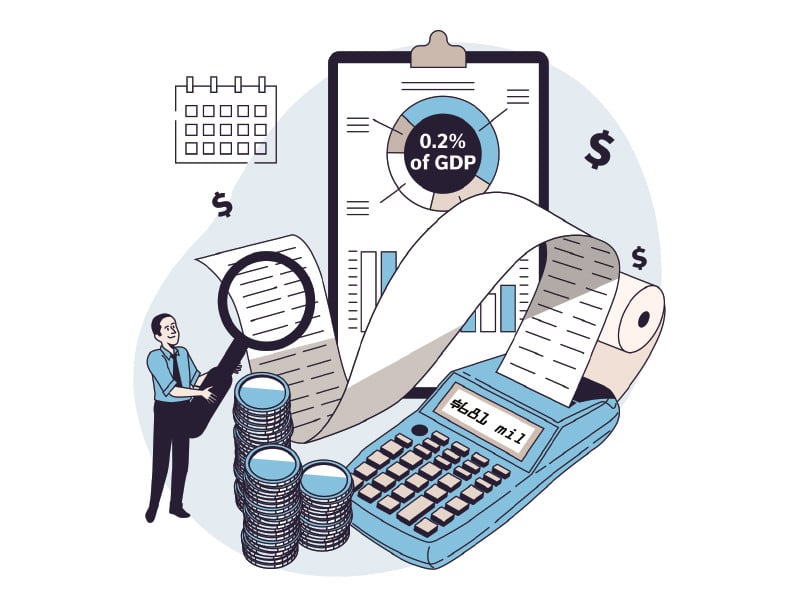By Khaleeq Kiani
Published in DAWN on February 03, 2022
ISLAMABAD: Pakistan can harness its strategic geopolitical potential, improve regional and international economic connectivity and become an economic hub for Asia if the $60 billion China-Pakistan Economic Corridor (CPEC) is implemented successfully, but without structural reforms the country will not be able to achieve optimal benefits.
This was stated by the Asian Development Bank (ADB) in a fresh report released on Wednesday. The study “Economic Corridor Development in Pakistan: Concept, Framework, and Case Studies” coincided with Prime Minister Imran Khan’s three-day visit to China along with a high-level delegation of cabinet members and government officials.
“If CPEC is successfully implemented, Pakistan can harness its strategic geopolitical location, improve its regional and international economic connectivity, enhance industrial development, and become an economic hub for Central, South, and West Asia,” observed the ADB.
“However, the CPEC alone will not bring optimal results. Structural reforms for private sector development are needed as well. Also, tax reforms are essential to broaden the tax base and enhance the perceived fairness of the tax system. Infrastructure built under the CPEC should be fully utilised to expand trade and regional cooperation,” the study observed.
Study says Pakistan should transform its economy through export-led growth
The report blamed poor export performance largely on low productivity and a lack of competitiveness, but said an unfavourable trade policy environment also played a key role.
An overvalued exchange rate and escalation of tariff on imported raw materials and intermediate goods could have contributed to a fall in exports, resulting in a consistently large trade deficit, which stood at $32.8 billion in FY2019.
The study said exporters had often faced a liquidity crunch due to non-payment of sales tax refunds and duty drawbacks.
The increase in interest rates to 13.25pc in 2019 had substantially raised the cost of capital to firms, which may further dampen investment and exports.
“Through market reforms, Pakistan needs to transform its economy into an export-led growth trajectory. In addition to improving the economy’s competitiveness and productivity with a vibrant private sector, it is critical to attracting domestic and foreign investments to support this transformation,” it added.
The Manila-based lending agency advised the government to “expedite the development of the nine special economic zones (SEZs) planned along the CPEC routes” as it noted that urban development and economic corridor development (ECD) were inextricably linked, with urban centres being the focus of labour, capital, technology, knowledge, innovation and structural transformation. “Therefore, a successful ECD strategy should aim to harmonise industry development and urbanisation,” it said.
“As cities become urbanised and industrialised, addressing challenges such as infrastructure deficits, overstretched public services, and environmental stress will be crucial. While cities in Pakistan are still vibrant, they are becoming increasingly disorderly, complex and congested, making it imperative to identify and address the constraints on building well-performing urban centres and integrating infrastructure public service systems,” the study noted.
The government, it said, implicitly treated urbanisation and industrialisation as separate processes and had designated different governance systems to manage them. Furthermore, local government units generally do not consider local economic development as part of their mandate and, therefore, do not actively promote industrialisation.
The ADB advised the government to develop an evidence-based targeted strategy for delivering affordable and reliable public services, including the public transport system, water supply and sanitation facilities, solid waste management, education and skills development.
Second, it should ensure access to affordable housing for factory workers and the low-income labour force. Third, the roles and responsibilities of the federal, provincial and local governments need to be streamlined, and vertical governance imbalances in revenue generation should be reduced. In this way, essential public services like education and health can be fully provided. Also, adopting a public-private partnership strategy could fill the gap for fiscal space.
Fourth, SEZs should be fully utilised as a spatial economic unit to create synergy between urban and industrial development processes.
The SEZ-based industrial and urban development has become one mode of expanding urban spaces in several countries.
The study said the international experience suggests that economic corridors succeed on the basis of latent economic potential and prospects as the corridor thrives and rides on the inherent economic potential of a region to attract private investment.
The starting point is selecting and prioritising a geographic area based on identified and bankable existing and future economic potential-based robust economic and technical analysis to build on economic potential and develop strategies to prioritise the most productive way to allocate scarce resources to create business opportunities, infrastructure needs and policy and regulatory requirements.
On top of that, political commitment at the highest levels of the government and coordination among the diverse government agencies are essential to incorporate ECD in a country’s overall economic plan.
“Based on the framework presented in this study, successful ECD planning and implementation in Pakistan must focus on the three pillars — infrastructure development, urban development and industrial development — and the four key drivers: economic potential, institution and regulation, sustainability and inclusiveness and external factors as described above,” the study concluded.





